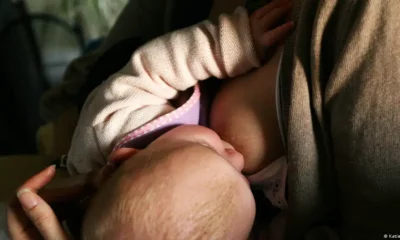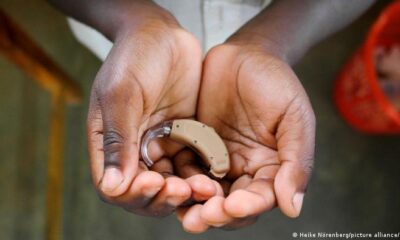CASES of a potentially fatal childhood virus are on the rise in the UK, new data has revealed.
Respiratory syncytial virus (RSV) is a common chest infection that affects babies and children under the age of two.

It’s usually mild but in serious cases, can lead to severe respiratory illness and pneumonia, which can be deadly, guidance from the Centre for Disease Control (CDC), states.
Cases of the virus in the UK are currently highest in children under the age of five, data from the UK Health Security Agency (UKHSA) found.
The number of positive tests has increased by 9.2 per cent in the week ending November 13 and experts have warned people to stay away from little ones if they are feeling unwell.
Dr Conall Watson, Consultant Epidemiologist at UKHSA said RSV cases are continuing, which is typical for this time of year, especially in young kids.
“For children under 2, RSV can be severe – particularly for babies and those born prematurely. Use a tissue to catch coughs and sneezes and wash your hands afterwards to reduce the spread to the most vulnerable.
“Never smoke near a baby and avoid visiting babies if you are ill. If you are worried your child has cold symptoms with any unusual breathing or trouble feeding, please contact your GP or NHS 111.
“If your child seems seriously ill, trust your judgement and get emergency care,” Dr Watson added.
The RSV hospitalisation rate has decreased under fives, the weekly report stated.
The early symptoms of the illness are similar to a cold and include sneezing, a runny or blocked nose, a cough and a high temperature, the NHS says.
However, a child with the illness could also display other key symptoms:
- Breathing more quickly
- Finding it difficult to eat or feed
- Noisy breathing
- Becoming irritable.
Guidance states that symptoms are usually worst between days three and five of the bug, with the cough getting better in three weeks.
If you are worried about any of your child’s symptoms then you should contact your GP.
In the event of an emergency, you should always contact 999.
RSV cases are higher than normal for this time of year, as are cases of other bugs, including flu.
That’s because Covid lockdowns, in which kids stayed at home, prevented RSV from circulating as it usually would.
In one report from the Academy of Medical Sciences, virus experts said the UK was heading for a “lethal triple mix of Covid-19, influenza, and the respiratory virus RSV” [this winter].
“This could push an already depleted NHS to breaking point this winter unless we act now,” it added.
Data from the UKHSA report also stated that hospitalisations of flu have increased in the under fives.
The number of people testing positive for the bug has remained stable at 6.9 per cent, but cases are highest in five to 14-year-olds, at 12.3 per cent.
Hospitalisation rates are highest in those aged 85 and over, followed by the under fives, with 2.96 per cent per 100,000 people being in hospital, up from 1.47 per cent last week.
The number of people in hospital is slightly above what would be expected for this time of year, the weekly report dated October 31 to November 13 states.
Flu can have serious consequences for young children and the elderly and in some cases, can lead to death, experts at John Hopkins Medicine state.

Must See
-


Tips
/ 10 months agoTen reasons for Amsterdam
Amsterdam mainly celebrates April 27th in Orange. The king’s birthday is traditionally celebrated with a...
-


Tips
/ 11 months agoTen travel tips for South Korea
A country between high-tech and tradition. A visit to East Asian South Korea is worthwhile...
-


Tips
/ 11 months agoTen reasons for Mecklenburg-West Pomerania
No other federal state has as much water as Mecklenburg-Western Pomerania. Baltic Sea waves wash...













